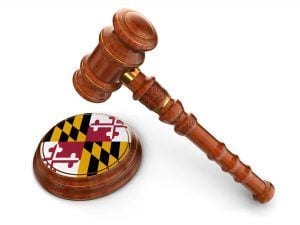 As of December 1, 2018, the United States District Court for the District of Maryland adopted several amendments to the local rules. Below is a list of the amendments along with a description of the change and a practical “takeaway.”
As of December 1, 2018, the United States District Court for the District of Maryland adopted several amendments to the local rules. Below is a list of the amendments along with a description of the change and a practical “takeaway.”
RULE 108: Judgments
The Amendment: Rule 108 was amended to include a requirement that, in order to obtain an order of default pursuant to Fed. R. Civ. P. 55(a), a plaintiff must file a written request with the Court. The request must contain the last known address of the defendant. Upon entry of default, the Clerk will mail the order to the defendant at the address stated in the request and to the defendant’s attorney of record, if there is one. The clerk will also send a notice to the defendant that the order has been entered and that the defendant may move to vacate the order within 30 days after its entry.
The Takeaway: To obtain an order of default under Fed. R. Civ. P. 55(a), the plaintiff must file with the court a request for default that includes the defendant’s last known address.
Rule 201: Counsel
The Amendment: Rule 201 governs which attorneys may represent a defendant in a criminal case. The rule was amended to create a general rule followed by an exception. The rule now provides that, except as provided otherwise by the rule, a defendant may be represented only by a member of the Bar of this Court.
Subsection b provides the exception for attorneys admitted pro hac vice. The Court may permit any attorney in good standing of the bar of any other United States court or the highest court of any state to appear and participate as counsel in a particular criminal case. That attorney is subject to the disciplinary jurisdiction of the Court and the party represented by an attorney admitted pro hac vice must also be represented by an attorney who is and remains an active member in good standing with the Bar of this Court. The attorney barred by the Court must sign all documents and unless excused by the presiding judge, be present at any court proceedings.
The Takeaway: Any attorney who is an active member in good standing of the bar of another United States Court or highest court of any State can be admitted pro hac vice to represent a criminal defendant, but the defendant must also be represented by an attorney who is barred by the District Court for the District of Maryland. The District Court has disciplinary jurisdiction over the attorney admitted pro hac vice. If you are serving as counsel that is barred by the District of Maryland, you must sign all documents and attend the court proceedings, unless excused by the presiding judge.
Rule 701: Admission
The Amendment: Rule 701(c) bars the admission of an attorney who is not a member of the Maryland Bar, who maintains his or her principal office outside the District of Maryland if that attorney is a member or becomes a member of the bar of the United States District Court for the district in which that attorney maintains his or her principal office if that district court has a local rule that limits membership in its bar to members of the bar of the highest court of the state (or the District of Columbia) in which the district is located.
As written before, the rule prohibited the admission of attorneys who were members of the bar of the United States District Court for the district in which the attorney maintained his or her principal office if that district court had a local rule that denied membership in its bar to any attorney who is a member of the Maryland Bar maintaining his or her principal law office in Maryland.
The Takeaway: Unless the attorney is also a member of the Maryland Bar, the District Court for the District of Maryland will not admit an attorney who maintains his or her primary office outside the District of Maryland if that attorney is or becomes a member of the bar of the United States District Court for the district in which the attorney maintains his or her principal law office if that district court has a local rule that limits membership in its bar to members of the bar of the highest court of the state (or the District of Columbia) in which the district is located.
Local Admiralty Rule (B): Maritime Attachment and Garnishment
LAR(b)(3) was amended in March 2018 to reflect a change in the numbering of the subsections of Fed. R. of Civ P. 4. Rule 4(e), to which LAR (b)(3) once referred, is now Fed. R. Civ. P. 4(n)(2).
Local Admiralty Rule (E): Actions in Rem and Quasi in Rem: General Provisions
LAR(e)(12) was also amended in March 2018. The amendment gives the Marshal the option of accepting cash for payments following an auction rather than always permitting the payment of cash. Payment must be made by certified check, by cashier’s check drawn on banks insured by the FDIC or the FSLIC, or as otherwise authorized by the Marshall.
Michael Elliker is an Associate in the firm’s General Litigation Group. Michael graduated summa cum laude from the University of Baltimore School of Law. While in law school, Michael was a Staff Editor for the University of Baltimore Law Review, a member of the Moot Court Board, and a Writing Fellow at the University of Baltimore Legal Writing Center. Before joining the firm, Michael served as a judicial law clerk for the Honorable Kevin F. Arthur of the Court of Special Appeals of Maryland.











